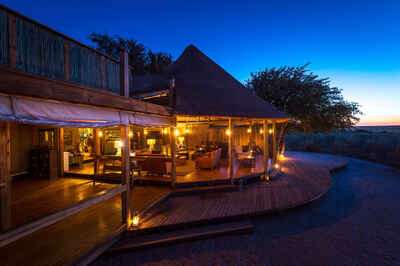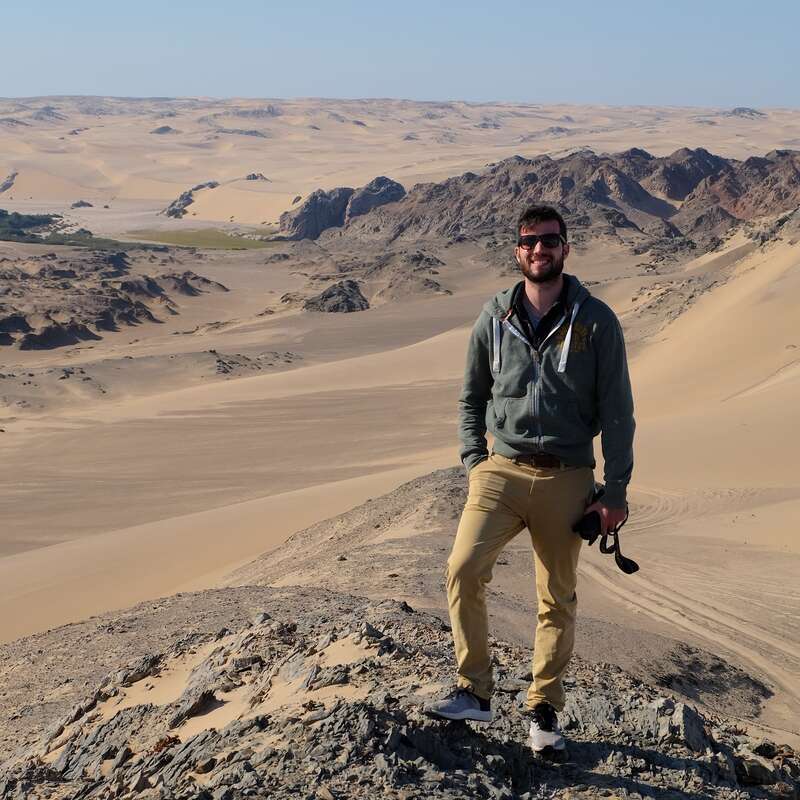About Kalahari Plains Camp (currently closed)
Kalahari Plains Camp sits on the edge of an enormous pan, south-east of Deception Valley in the Central Kalahari ...
... Game Reserve (also known as the CKGR), which offers some of Botswana's best summer game viewing. It is one of just two camps in a reserve approximately the size of Switzerland, and the views from across the pan are immense. The camp was moved here from its original location in 2009, taking it away from the more accessible public roads in the reserve.
Kalahari Plains Camp is well situated close to the CKGR's most famous area, Deception Valley. We loved the big gauze windows in the tented chalets and the sleep-out decks on the roofs. The guiding was good and we felt that the camp offers a relatively unexplored wilderness with the potential for great game sightings between about December and March. However, we'd be less enthusiastic when the park is drier, and the game less visible, between about June and November. On one visit we had great sightings of 2 individual groups of bat eared fox which can be found regularly int his area. We saw plenty of plains game such as springbok and Oryx with the odd black-backed jackal.
STOP PRESS: Sadly Kalahari Plains Camp is now closed and, as yet, there is no date for its re-opening. Please call us for the latest details and alternative options.
Our view
Kalahari Plains Camp is well situated close to the CKGR's most famous area, Deception Valley. We loved the big gauze windows in the tented chalets and the sleep-out decks on the roofs. The guiding was good and we felt that the camp offers a relatively unexplored wilderness with the potential for great game sightings between about December and March. However, we'd be less enthusiastic when the park is drier, and the game less visible, between about June and November. On one visit we had great sightings of 2 individual groups of bat eared fox which can be found regularly int his area. We saw plenty of plains game such as springbok and Oryx with the odd black-backed jackal.
STOP PRESS: Sadly Kalahari Plains Camp is now closed and, as yet, there is no date for its re-opening. Please call us for the latest details and alternative options.
Accommodation
10 chalets; 1 family
Children
Best for aged 12+
Open
All year
Activities

4WD Safari

Birdwatching

Cultural excursion

Private activities

Sleeping under the stars
Traveller reviews of Kalahari Plains Camp
16 real, un-edited reviews from Expert Africa's travellers.
Arrived 19 Mar 2018, 2 nights
"Kalahari Plains Camp review"
Overall rating: Good
Arrived 29 Oct 2017, 3 nights
"Sleeping Out Under Stars"
Overall rating: Excellent
Arrived 24 Oct 2016, 2 nights
"Kalahari Plains Camp review"
Overall rating: Excellent
Arrived 3 May 2015, 4 nights
"Very nice camp in a great location."
Overall rating: Excellent
Arrived 28 Feb 2015, 3 nights
"A safari like no other"
Overall rating: Excellent
Arrived 25 Jul 2013, 3 nights
"Very interesting visit to Kalahari Plains"
Overall rating: Excellent
Arrived 10 May 2013, 3 nights
"Great desert experience"
Overall rating: Good
Arrived 3 Apr 2013, 3 nights
"Kalahari Plains Camp review"
Overall rating: Excellent
Arrived 9 Mar 2013, 3 nights
"Kalahari Plains Camp review"
Overall rating: Excellent
Arrived 9 Mar 2013, 3 nights
"Fantastic Experience"
Overall rating: Excellent
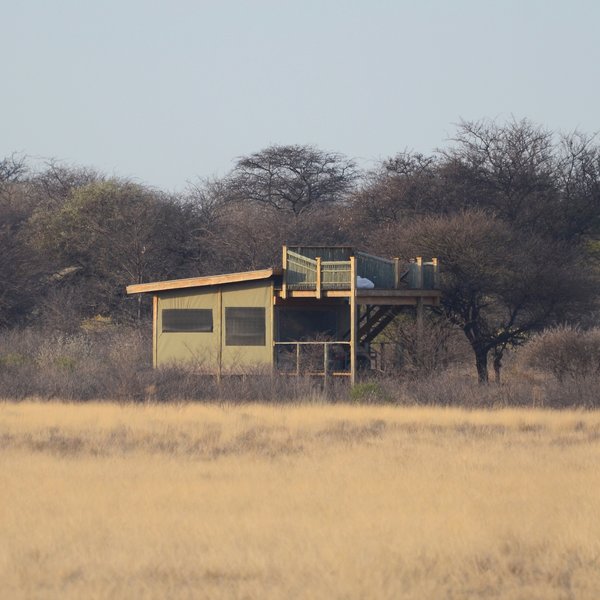
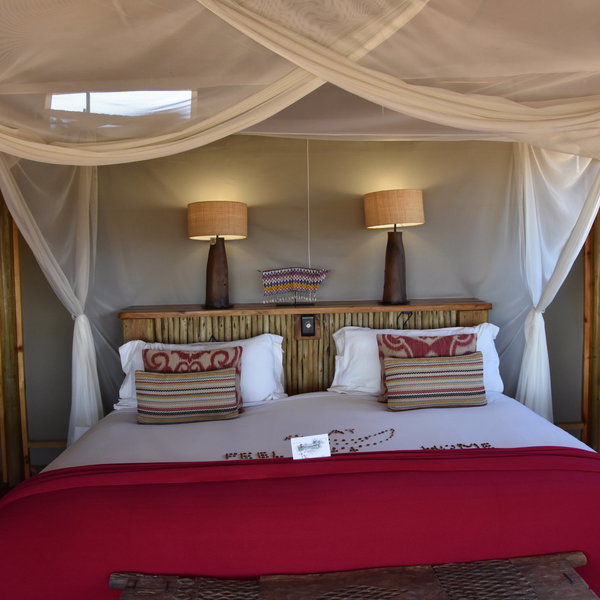
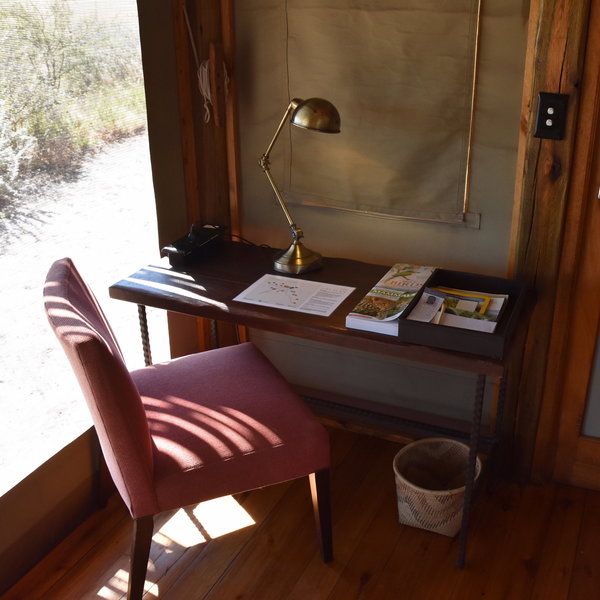
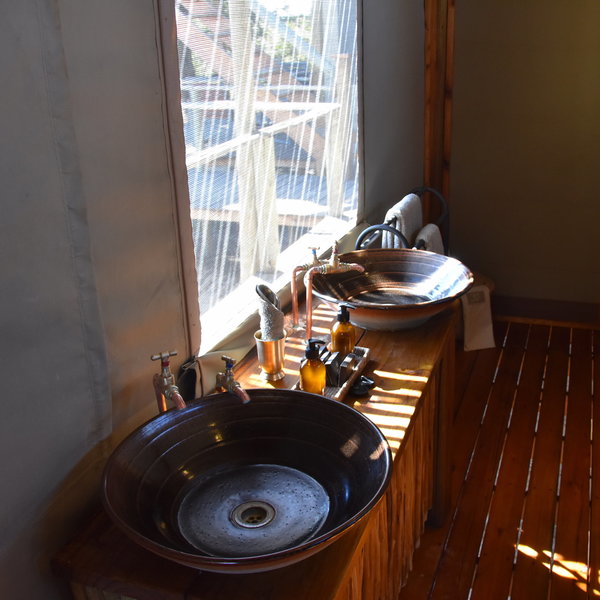
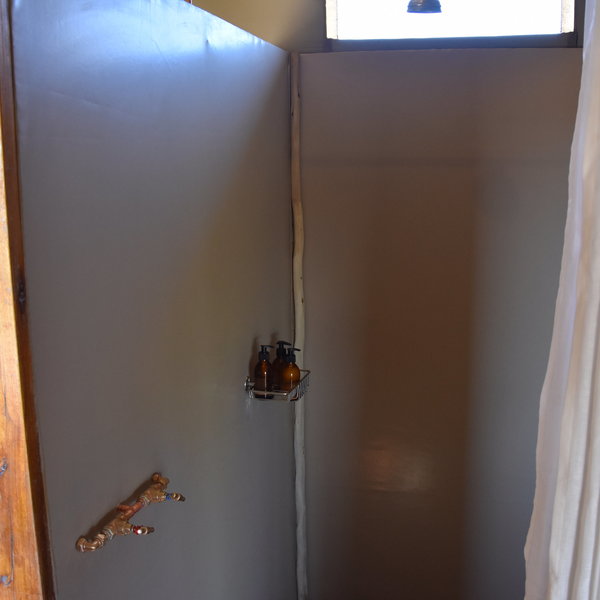
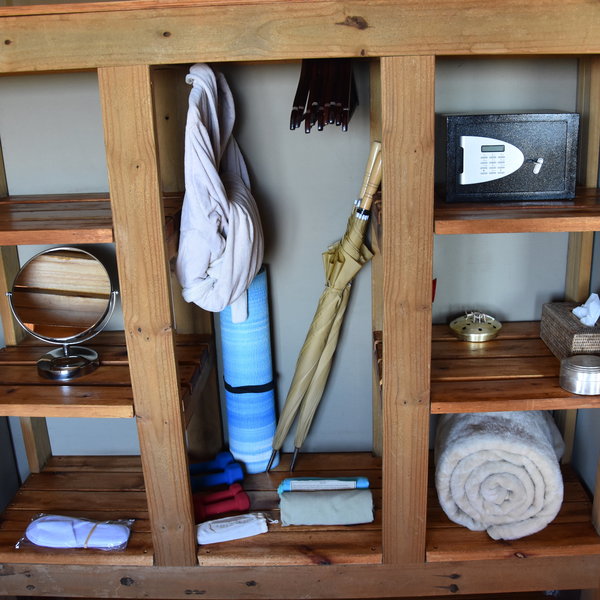
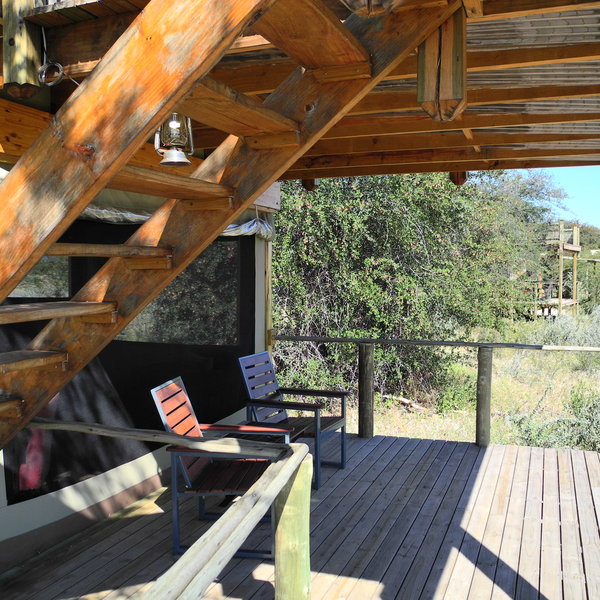
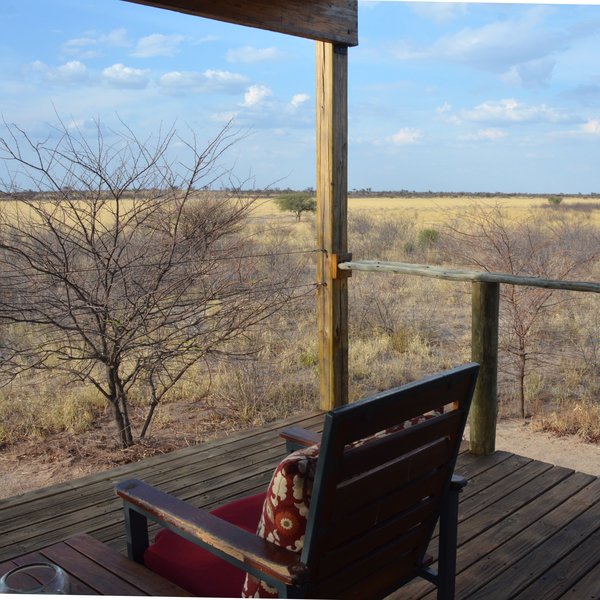
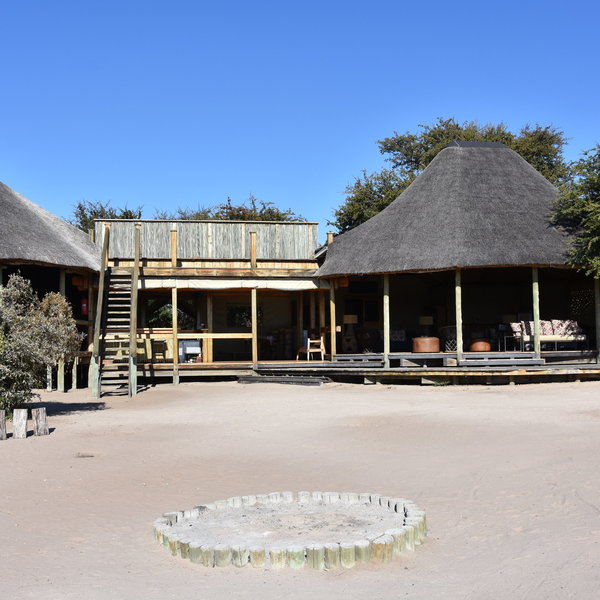
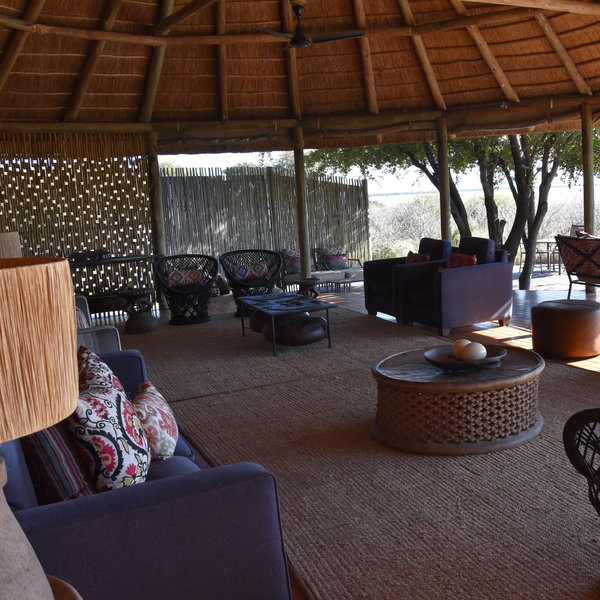
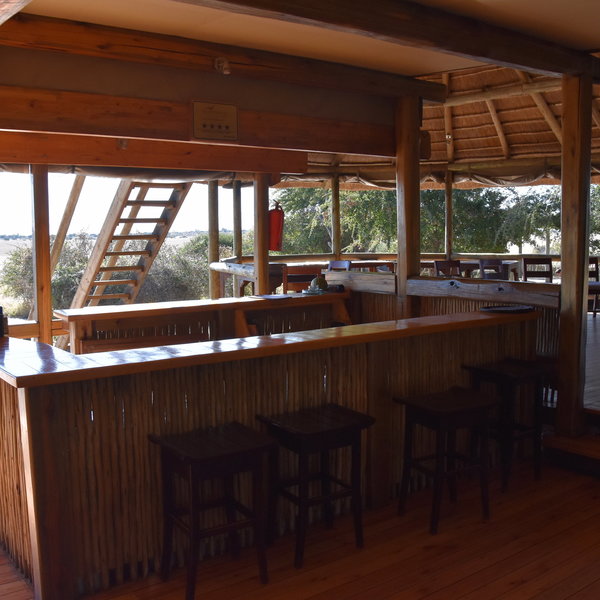
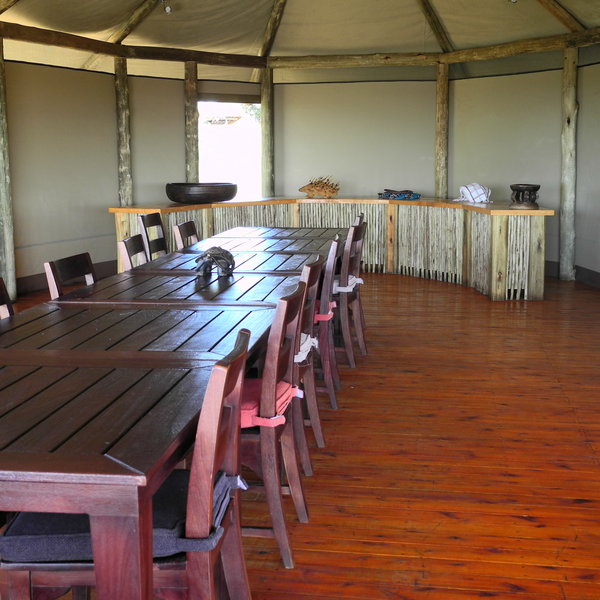
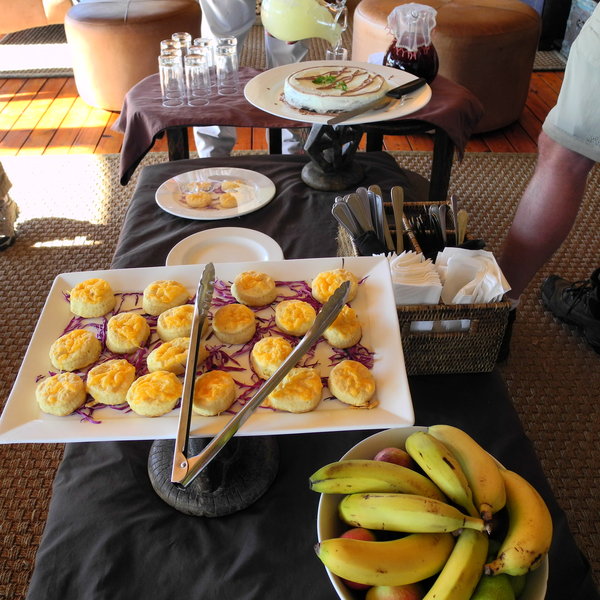
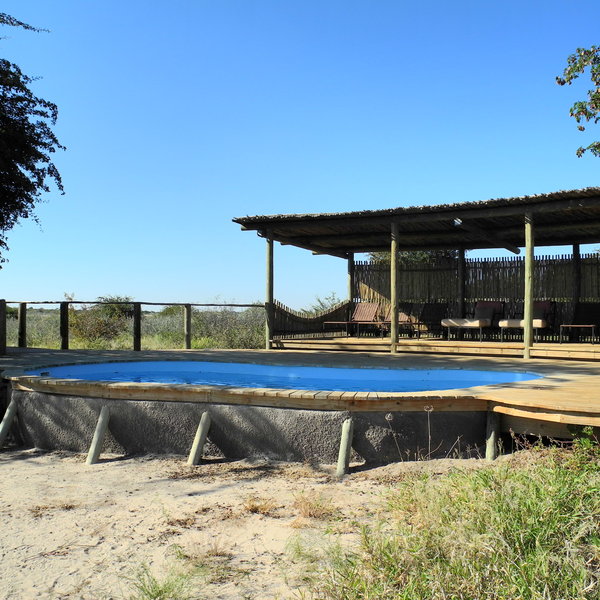
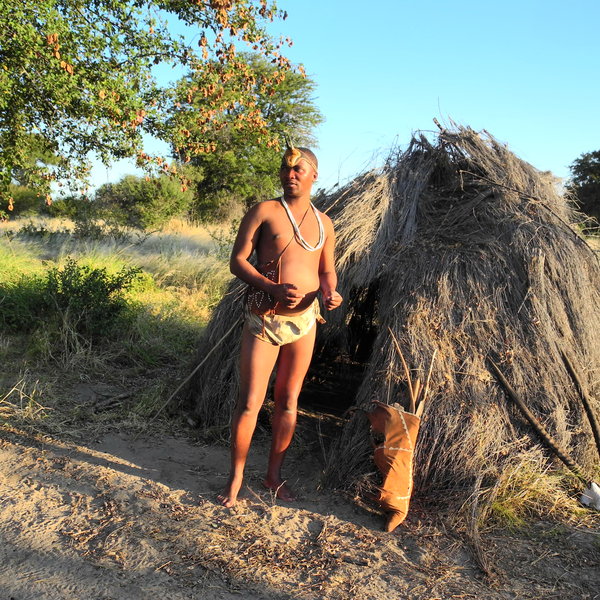
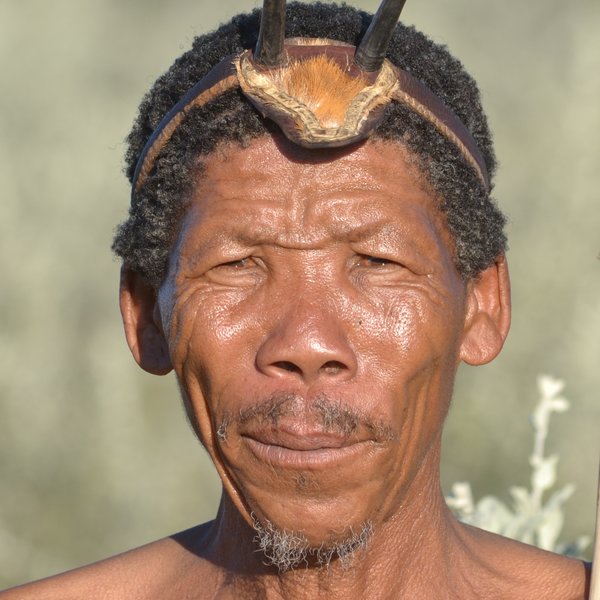
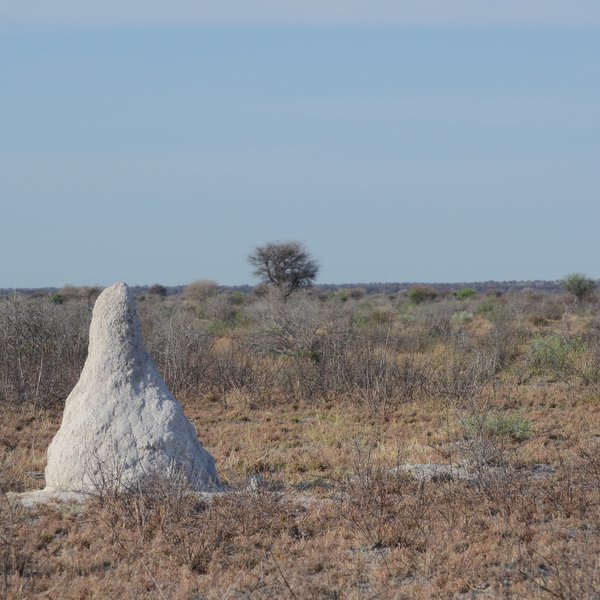
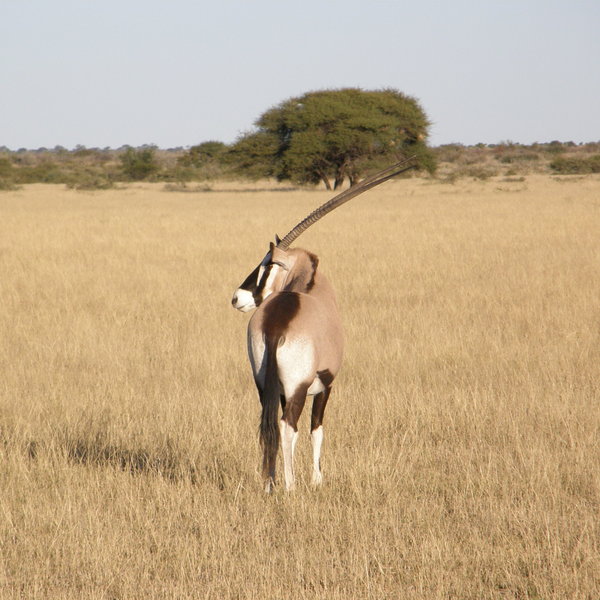
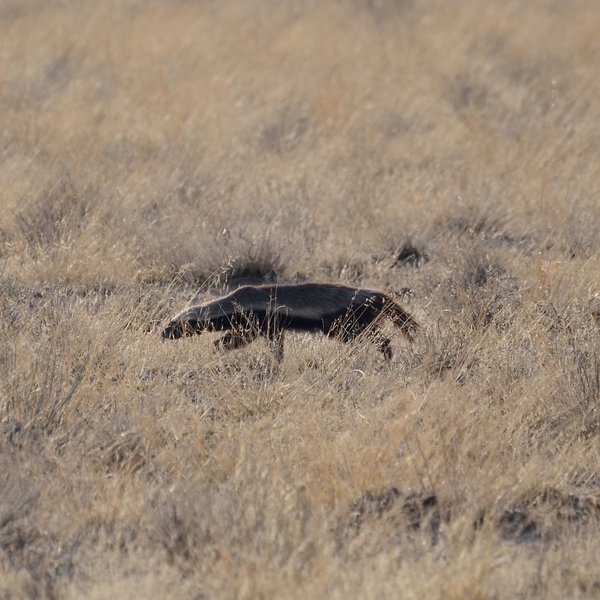
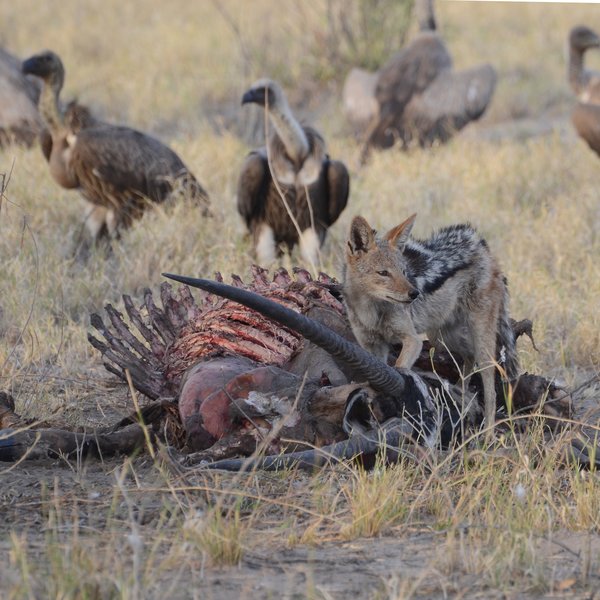
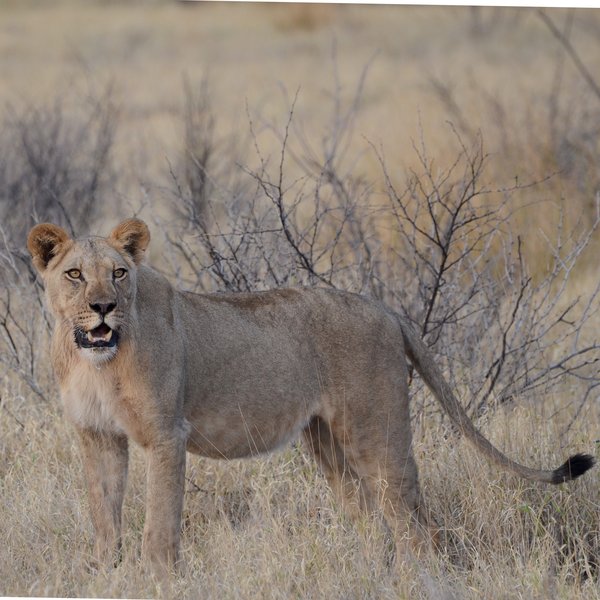
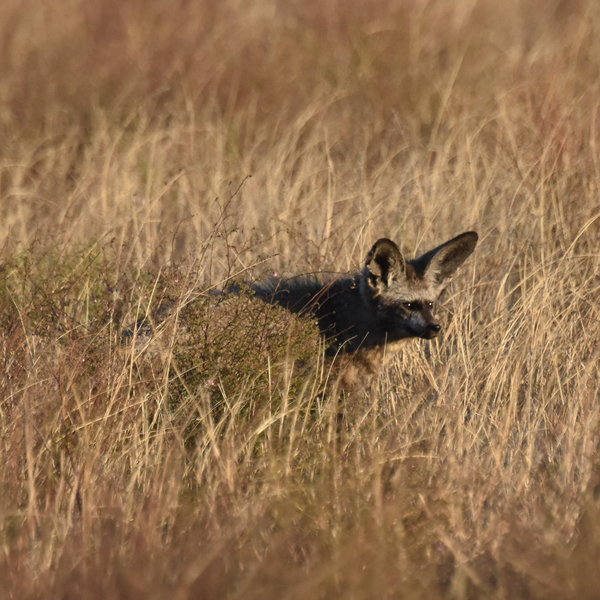
Expert Africa's gallery
When we travel we take lots of photos ourselves to give you a real and un-edited view of the safaris. See our 36 pictures of Kalahari Plains Camp to get the candid view.
View galleryKalahari Plains Camp: Our full report (currently closed)
Kalahari Plains Camp sits on the edge of an enormous pan, south-east of Deception Valley in the Central Kalahari ...
... Game Reserve (also known as the CKGR), which offers some of Botswana's best summer game viewing. It is one of just two camps in a reserve approximately the size of Switzerland, and the views from across the pan are immense. The camp was moved here from its original location in 2009, taking it away from the more accessible public roads in the reserve.
Kalahari Plains is located well away from the more accessible public roads in the reserve, on the edge of the aptly named Big Pan, and affords great views across this vast (often sparsely vegetated) expanse. There is a waterhole a fair distance away, but with the help of the viewing scope in the main area, you can take a closer look at its visitors.
The main area of Kalahari Plains Camp is a thatched, wooden building, built on a raised deck and open on three sides to allow the air to flow freely. At one end is the dining area, with views out to the separate pool deck and the pan. The small saltwater pool here offers welcome relief from the Kalahari heat, and the shaded deck with comfortable sunloungers some respite from the sun. This deck also leads to a guest toilet with the most fantastic views over Big Pan – so worth trying at least once!
A large proportion of the main area is taken up by an inviting lounge area, an eclectic gathering of comfortable chairs, tea- and coffee-making facilities with freshly baked biscuits in a jar, and a small reference library. At the heart of the building, the bar is the venue for pre-dinner drinks, and when we last visited in June 2017 we had a drink here before dinner. The curio shop is well stocked and we liked the fact that they sell a good selection of locally made items. There is a stargazing deck on the roof above the bar, and an open campfire area in front where dinner is usually served if the weather allows. Unlike most camps in Botswana the fire is not lit every night due to the scarcity of wood here.
Accommodation at Kalahari Plains Camp is in ten tented chalets, linked to the main area by sandy pathways. These chalets are of a good size, built on wooden decks raised off the ground to keep them cool in the very hot summer months. The innovative insulated canvas walls and roof of each chalet, together with a ceiling fan and large mesh windows, also help to keep the interior relatively cool. We loved the airy feel that these large windows give to the chalets, but were pleased to see roll-down canvas and clear plastic blinds in case of inclement weather.
The chalets are decorated in neutral tones and simply, but comfortably, furnished, with lots of wood, soft suede and leather. The beds, which can be made up as twins or a double, face out towards the veranda with fantastic views of the plains. You'll also find a writing desk with a lamp, universal plug points for charging camera batteries, and a tasteful wooden tray featuring tea and coffee, a flask of hot water (which is topped up with boiling water every morning and evening), mugs, glasses and a jug of iced water. A comfortable armchair looks through the enormous mesh window, while outside on the deck are deckchairs and a table.
A door to one side of the chalet leads to the en-suite bathroom, complete with a flushing toilet, twin handbasins with copper taps, a full-length mirror and walk-in shower. You'll also find plenty of wooden shelves and hanging space for clothes, extra blankets for the very chilly winter nights, a digital safe, insect repellent and environment-friendly shower gel, shampoo and conditioner. Another thoughtful touch in the hot summer months is the provision of a sarong. Take it with you on a game drive and your guide will wet it in cold water for you to drape over your shoulders to keep cool. 'Kalahari air-conditioning' at its best!
One of the coolest features of each chalet at Kalahari Plains – and a real highlight for us on our last visit – is the sleep-out deck, accessed up wooden steps from the bottom deck. Your bed can be made up here for you to sleep under the stars, but if you get a little nervous, or chilly during the night, you can quite easily pop back downstairs into the comfort of your bed inside. We loved lying tucked up and cosy, gazing up at the star-filled sky (and desperate to see just one shooting star!): all the best bits of camping, but a lot more comfortable and without the associated work!
Two of the tented chalets have a second en-suite bedroom sleeping up to two children, so are ideal for families, or friends travelling together. The main bedroom offers exactly the same facilities as the standard chalets, whereas the second bedroom, while en suite, doesn't have a veranda or the sleep-out deck. It's important to note is that there is no inter-leading door between the two tents; to access one from the other you have to go outside and walk across your deck.
Guided morning and afternoon game drives in open 4WD vehicles are the mainstay of activities at Kalahari Plains Camp, but what you see will depend largely on the season, and the timing of the rains. For much of the year the Central Kalahari Game Reserve is a dry, unrelenting landscape dotted with a relatively low density of wildlife, which includes springbok, gemsbok (or oryx), black-backed jackals, bat-eared foxes and, occasionally, wild dog, cheetah and lion. Between May and October, when the Okavango Delta is awash with the annual flood waters, the contrast is quite stark. It's the perfect time to see first-hand just how well these animals have adapted to survive in these harsh conditions.
However, during the summer months, from November through to April in times of good rainfall (with December, January and February being the best), the valleys and pans of the CKGR turn green with nutritious grasses. Antelope, blue wildebeest and giraffe arrive to feed on these sweet grasses and they can attract predators to the area, including cheetah, Kalahari black-maned lion and black-backed jackals. This is when the Central Kalahari offers its best game viewing.
Full-day trips to Deception Valley or further afield can be arranged on request, though as Kalahari Plains is within the national park, no off-road driving or night drives are allowed. This can be particularly frustrating when the animals you've spotted are in the far distance, so remember to bring along a good pair of binoculars.
Back at base, Kalahari Plains also offers an educational walk in the immediate vicinity of the camp, led by a local multi-generational San Bushman family. Previously, the walks were led by a member of the staff dressed in traditional Bushman attire who may or may not have been a direct descendant, but fortunately the San family members leading the walks now are full-time employees at Kalahari Plains Camp who alternate with another San family from the same village. They speak in their own Khoisan language using clicks, and a Setswana-speaking staff member assists with translation. During the walk, the Bushmen demonstrate how traps are set for catching small birds and antelopes. They also highlight the traditional medicinal purposes of local plants, and demonstrate how the age-old way to make a fire. It is worth mentioning that the Bushmen wear their traditional garments only during the walk; during the rest of their time in camp, they wear the standard staff uniform.
Kalahari Plains operates in constantly challenging conditions, on a previous visit we found their unusual 'behind the scenes' tour especially interesting. We were proudly shown the impressive state-of-the-art solar system, which runs off 72 solar panels and provides all the electricity and hot water in camp. Water is life in this dry environment, and we learned about the water storage and distribution. The water from the borehole is saltier than seawater, so is used for such things as the showers and the pool. Drinking water, which was once trucked in over a distance of 100km, is now produced by a reverse osmosis machine kept at camp, which purifies the water by removing the salt. We particularly enjoyed meeting the people behind the scenes, who keep everything ticking over smoothly.
That said, because 'behind the scenes' areas – like the kitchens and staff village – are relatively close to the chalets, we found that we could often hear snippets of noise from them during our stay.
Geographics
- Location
- Central Kalahari Game Reserve, Botswana
- Ideal length of stay
- Stay two nights during the largely dry season of April to November and three nights during the Kalahari's most productive season, between about December and March.
- Directions
- Access to Kalahari Plains Camp is usually by air. It is approximately a 1¼
-hour light-aircraft flight from Maun, followed by a 30-minute drive to the camp. Alternatively, the camp can be reached by 4WD on a self-drive itinerary but you still need to pre-book. - Accessible by
- Self-drive or Fly-and-Transfer
Food & drink
- Usual board basis
- Full Board & Activities
- Food quality
- On our last visit to Kalahari Plains Camp in June 2017, we have found the standard of food to be very high.
A light breakfast is served before heading out on activities. This is usually a buffet of cereals, fruit, yoghurts and freshly made muffins and pancakes.
Lunch was served on our arrival, it included breaded hake, mixed salad and coleslaw with pumpkin and lentils.
We are constantly amazed at the wonderful creations the chefs come up with for afternoon tea. Who doesn't enjoy an ice cream on a hot summer's day? Kalahari Plains Camp’s homemade ice cream with chocolate brownies did not disappoint. The mini bite-sized burgers and deep-fried, chiekn wings were very tasty. Guests help themselves to tea, coffee, iced-tea and incredible homemade lemonade, which seemed to fizz in the mouth!
Dinner is, more often than not, taken as a group around one long table but individual tables can be arranged on request – or if there are children in camp. Previously we have enjoyed creative savory canapés of local pap (cooked maize flour) topped with pounded beef ( known locally as ‘seswaa’). During our most recent stay we had beef fillet, ostrich koftas, salad, mange tout and gem squash stuff with quinoa. Desserts are very good, and in the past we have had yummy chocolate mousse with a homemade brandy snap. - Dining style
- Group Meals
- Dining locations
- Indoor and Outdoor Dining
- Further dining info, including room service
- Private dinners can be arranged for special occasions and families with young children.
- Drinks included
- Bottled water, soft drinks, local beers, spirits and red and white wines are included. Premier champagne and premium imported brands will cost extra and must be requested well in advance.
Each guest is given an aluminum water bottle on arrival with cold filtered water from the camp’s reverse osmosis machine, which they are encouraged to top up from the supply in the camp's main area. Each chalet is also provided with glasses and a flask of filtered drinking water. The water from the taps is very salty, and not suitable for drinking.
Special interests
- Family holidays
- Kalahari Plains Camp has an interconnecting family chalet with a single sleep-out deck, so this is a good option for a family safari in Botswana. Furthermore, the complimentary ‘Bush Buddy’ programme aims to entertain and educate children.
- See ideas for Family holidays in Botswana
- Cultural Experiences
- As a result of Kalahari Plains’ partnership with local San Bushman, we strongly recommend the camp for traditional cultural experiences in Botswana. Guests gain a glimpse of how this fascinating culture has survived for centuries in harsh conditions.
- See ideas for Cultural Experiences in Botswana
Children
- Attitude towards children
- Children over the age of 12 are welcome at Kalahari Plains Camp. The camp may accept children aged 6–12 if a private vehicle is booked but this must be requested in advance. Children of six years and under are not accepted.
- Property’s age restrictions
- Minimum age six years
- Special activities & services
- Kalahari Plains Camp has a complimentary 'Bush Buddy' programme that offers families with children a dedicated member of staff for the duration of their stay. This must be requested and pre-booked prior to arrival. There is a wide range of entertaining and educational activities, tailor-made to suit the children's ages and interests. Activities include arts and crafts, short nature walks around the camp, tracking lessons, bird and animal call identification, treasure hunts, baking biscuits and cooking lessons in the bush, for example pizza-making in termite mounds, dancing and drumming, star-gazing and storytelling. Children can also participate in the 'behind the scenes tours' learning about how the camp functions. For older children, the Bushman walks give an informative and entertaining recital of their traditions and culture. Children are also given a safari bag with age-appropriate gifts.
- Equipment
- There is one interconnecting two-bedroom family unit at Kalahari Plains Camp. The camp can arrange separate mealtimes and menus for families with children.
- Generally recommended for children
- The 'Bush Buddy' programme is a wonderful addition for families with children, and we have witnessed this first hand. When one child in a family didn't want to go on a game drive, they remained in camp with their Bush Buddy to play football, paint paper plates, make grass bracelets and catch insects in a bug viewer. Do bear in mind that in summer, because of the heat, the activities start very early – around 5.00am – and tend to be shorter than at Delta camps, returning to camp at around 9.00am, so there are long periods of free time during the middle of the day.
- Notes
- The camp is unfenced and dangerous wildlife can wander through the camp at any time. There is no fence around the pool. There is a small gate at the top of the stairs to the 'star-bed' deck but there is no lock and there is nothing to stop children climbing the stairs. Children need to be closely supervised by their parents/guardians at all times.
Communications
- Power supply notes
- Kalahari Plains Camp has a 40kVA (kilovolt-amps) back-up generator. Batteries can be charged in the chalets, which have power at all times.
- Communications
- Kalahari Plains Camp is in radio contact with the guides whilst on activities and with the main office in Maun. There is a satellite phone available for emergencies, but no internet or cellphone access.
- Water supply
- Borehole
- Water supply notes
- All the tented chalets have plumbed hot and cold running water for showers, basins and flushing toilets. The well is located 1.5km from camp, and a generator pumps water into the reverse osmosis machine.
Sustainability
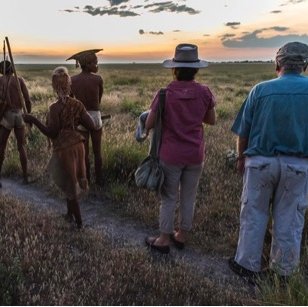
Exploring the Kalahari desert with ‘baSarwa’
Honouring the local culture has become a priority at Kalahari Plains Camp. Encouraged by the cultural heritage deeply entrenched in the sands of the Kalahari desert, the camp offers guests the chance to take bush walks led by local staff who share their knowledge about the intricacies of living in a harsh environment.
Often described as a sensory delight, the ‘Bushman Walk’ highlights a distinctly unique culture. Much to guests’ comfort, local guides provide the information in English. Also, the walk of 800 metres is set at a very manageable pace and embroidered with story tales and live shows. The activity was designed to provide insights into the local baSarwa’s (‘bushmen’) traditional ‘hunter-gatherer’ lifestyle. Tourists learn about the different species that are good for eating or as spices, used in hunting or to create arrow tips or about how to light a fire and find fresh water. Bushmen are educated to respect the environment and make conscious use of the limited natural resources. As an interesting example, ostrich eggs are considered a meal, a vessel to carry water or raw material to make necklaces, but only eggs without chicks are harvested.
Other steps towards community engagement include hiring mostly staff from local villages or supporting Children In the Wilderness, an initiative aimed at increasing the children’s understanding of natural environments.
See more great sustainability projects in Botswana
Health & safety
- Malarial protection recommended
- Yes
- Medical care
- The manager and guides at camp are first aid qualified. Anyone with serious medical issues will usually be flown from camp to the nearest hospital for treatment. Please note that it is only possible to fly out of camp during daylight hours as the bush airstrips do not have any lighting at night.
- Dangerous animals
- High Risk
- Security measures
- Guests are escorted to their chalets after dark in case of animals wandering through the camp.
- Fire safety
- Fire extinguishers are situated outside each tent and the main area. Kalahari Plains Camp also has a 'fire station' with buckets, fire beaters and other equipment needed to help put out a fire.
Activities
4WD Safari
Birdwatching
Cultural excursion
Private activities
Sleeping under the stars
Extras
- Disabled access
- Not Possible
- Laundry facilities
- A laundry service is included at Kalahari Plains Camp. For cultural reasons, the staff cannot wash underwear, but a small pot of soap powder is included in each tent for guests who wish to do a little handwashing.
- Money
- Each tent has a small safe to store any travel documents or cash. No foreign exchange facilities are offered.
No additional payment is needed in camp. - Accepted payment on location
- MasterCard and Visa credit cards are accepted. Cash payments may be made in South African rand, British pounds, US dollars, euros and Botswana pula. We recommend US dollars in small denominations for any tips.
Plan and book your trip with Expert Africa
All of our trips are tailor-made, so we'll always adapt them to suit you. Talk to an Expert and let us plan and arrange your perfect trip.

Talk to an Expert
Call or email us now! We’ll match you with the Specialist in our team who is best suited to help you. Then together we can start planning your trip.

Set up your itinerary
Based on our experience and your ideas, your specialist will create a detailed, costed itinerary. We’ll refine it together, until we have a trip that you’re perfectly happy with.

Prepare for your trip
The same Specialist will make the seamless arrangements for your trip, send you detailed travel documents, and be available to answer any questions before you depart.

Travel with peace of mind
After you set off, you’ll be cared for by our partners in Africa, most of whom have worked with Expert Africa for decades. And if you ever need us urgently, we’re available 24/7.

When you return
We love to learn about your trip, and so will always be grateful if you’ve the time to give feedback to your Specialist when you return.
Kalahari Plains Camp's location
Look closer at the environment and surroundings of Kalahari Plains Camp.
Excursions from Kalahari Plains Camp
Optional extra day-trips and excursions possible whilst you're staying at Kalahari Plains Camp. Talk to us: these are usually best arranged before you go.
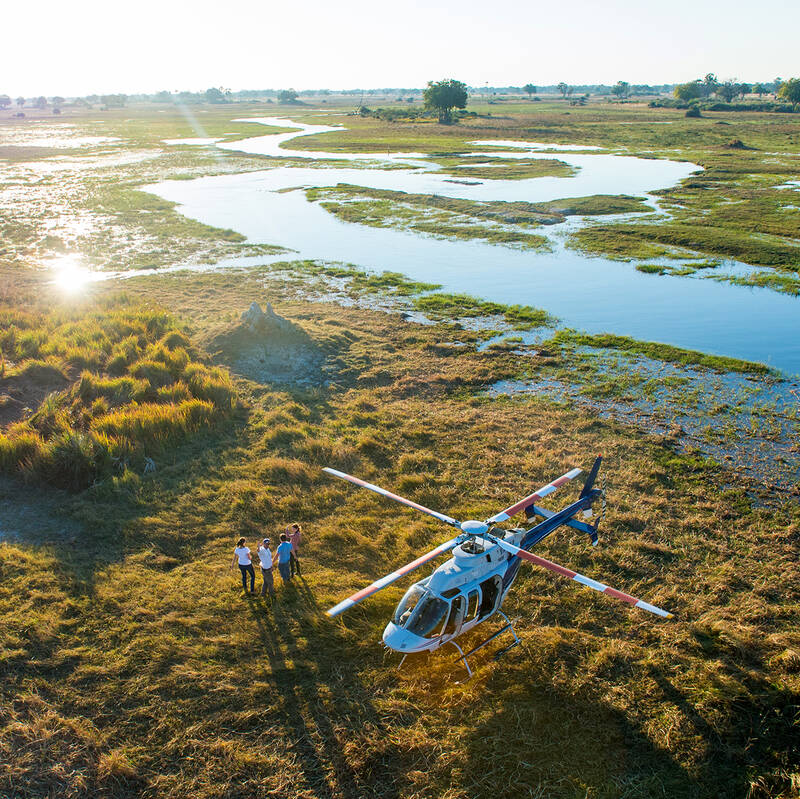
Helicopter Flight - Botswana
Various: from 30 minutes to half a day.
Low-flying, agile and offering superb views, helicopters are an ideal way to move around the Okavango Delta.You can use them instead of fixed-wing inter-lodge transfers or as an addition to other wildlife watching activities, and of course, helicopters can hover to allow that perfect pic, whereas fixed-wings can’t.
More about Helicopter FlightOther lodges in Central Kalahari Game Reserve
Alternative places to stay in this same area.
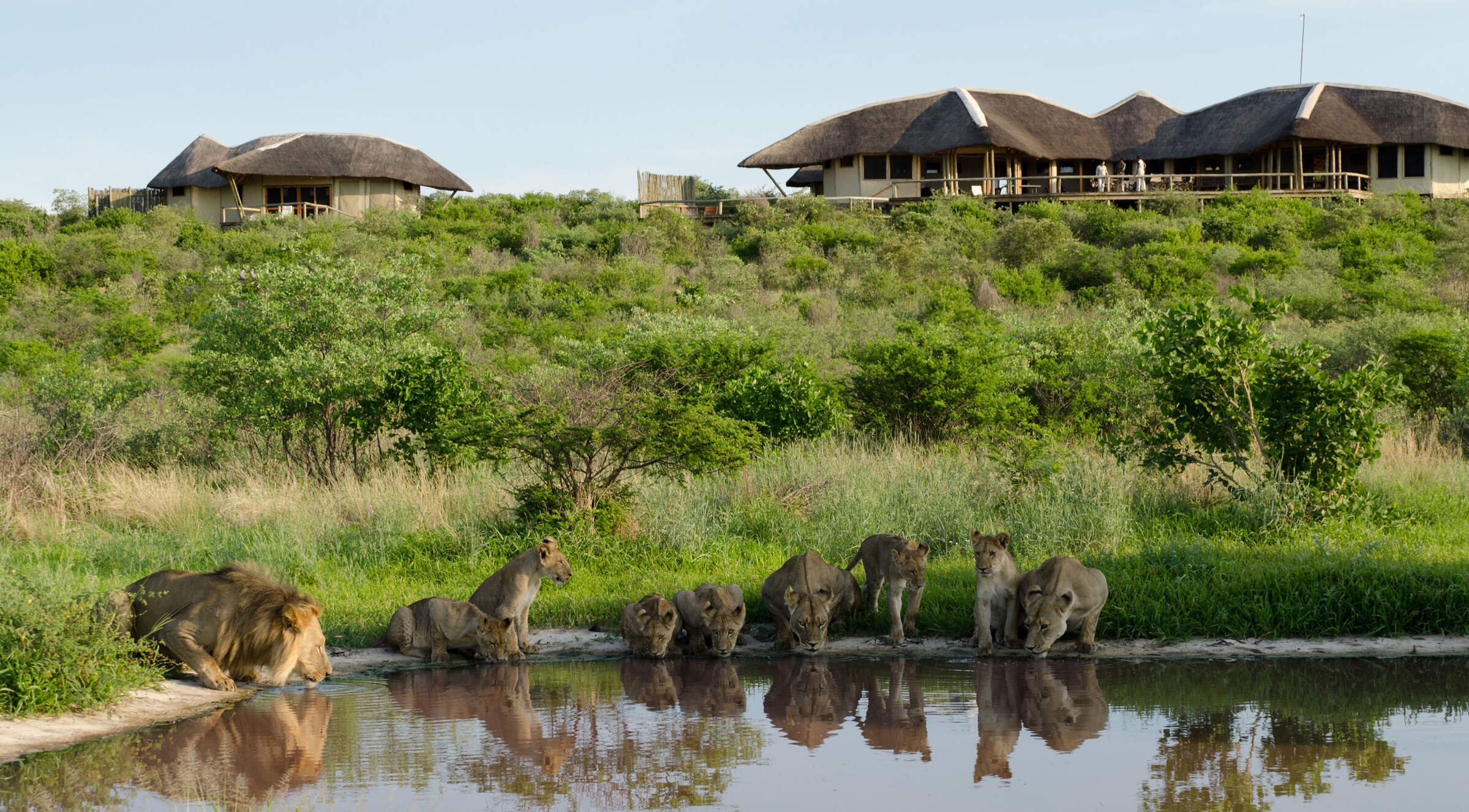
Tau Pan Camp
The comfortable Tau Pan camp inside the Central Kalahari Game Reserve offers some of Botswana's best summer game viewing and birdwatching.
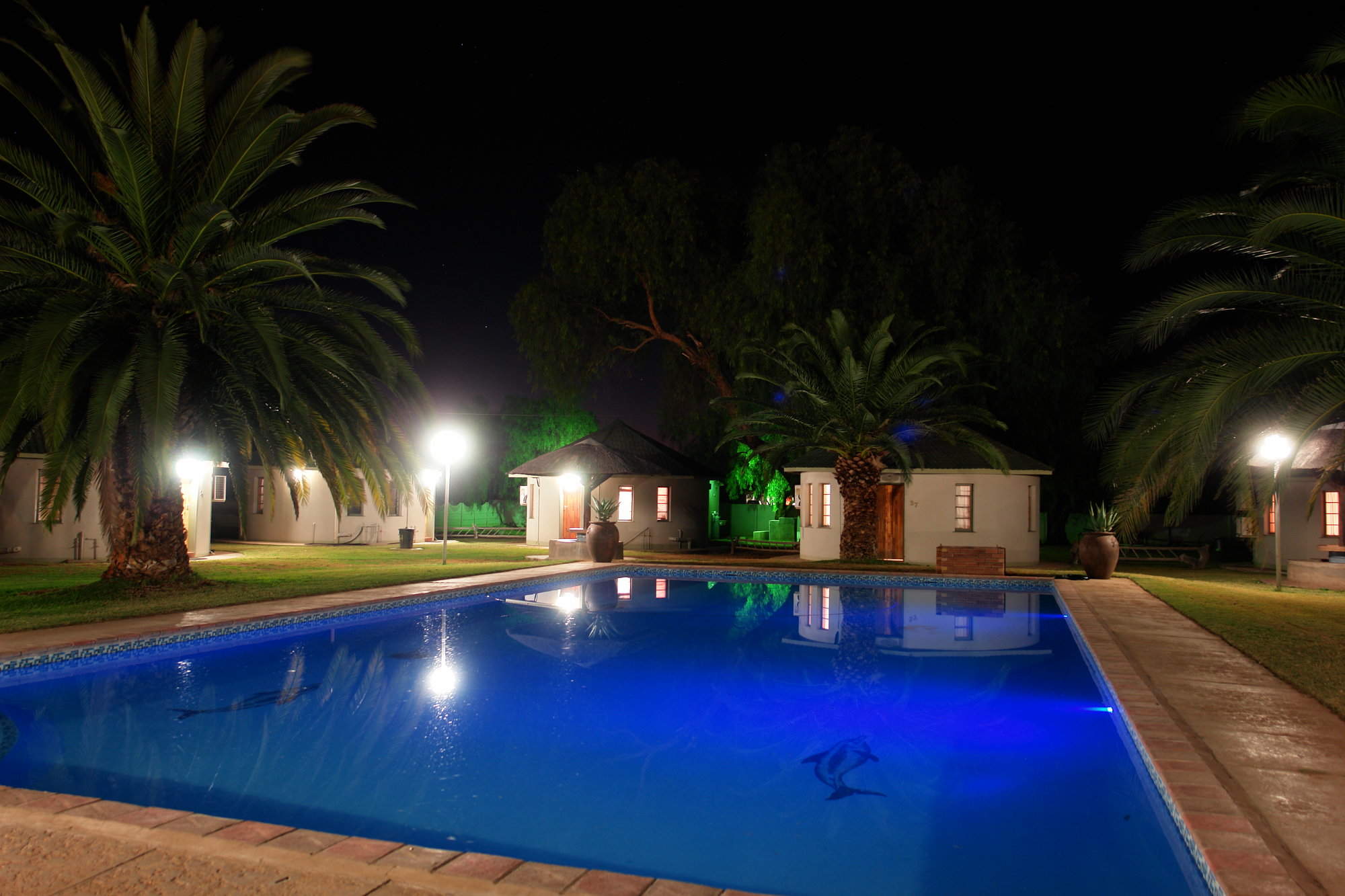
Kalahari Arms Hotel
Kalahari Arms Hotel, in the town of Ghanzi, is a practical overnight stop for travellers crossing the Kalahari to or from Namibia.
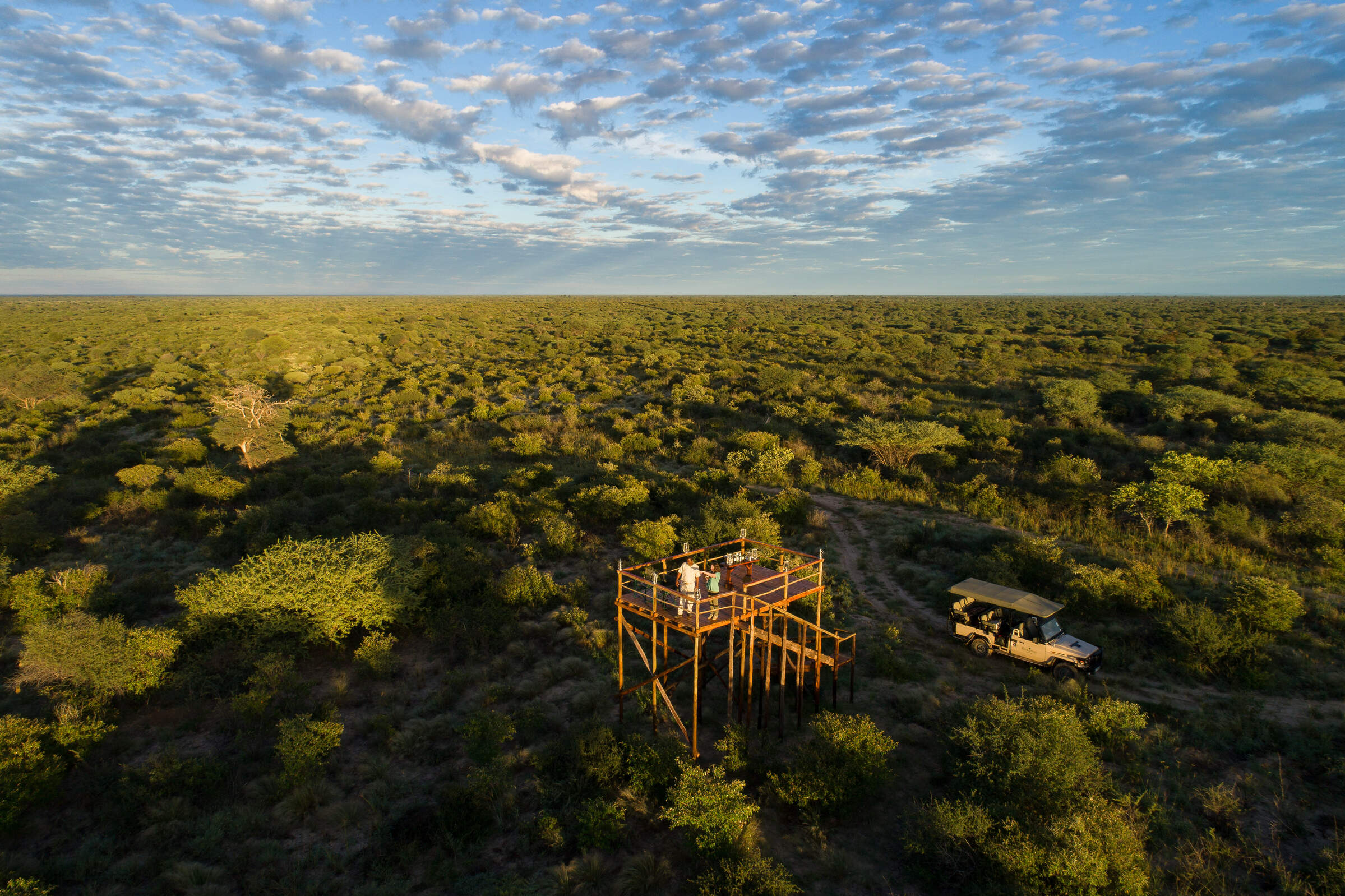
Dinaka
The newest addition to Ker and Downey Botswana’s portfolio, Dinaka is based on a private game reserve on the northern boundary of the CKGR.
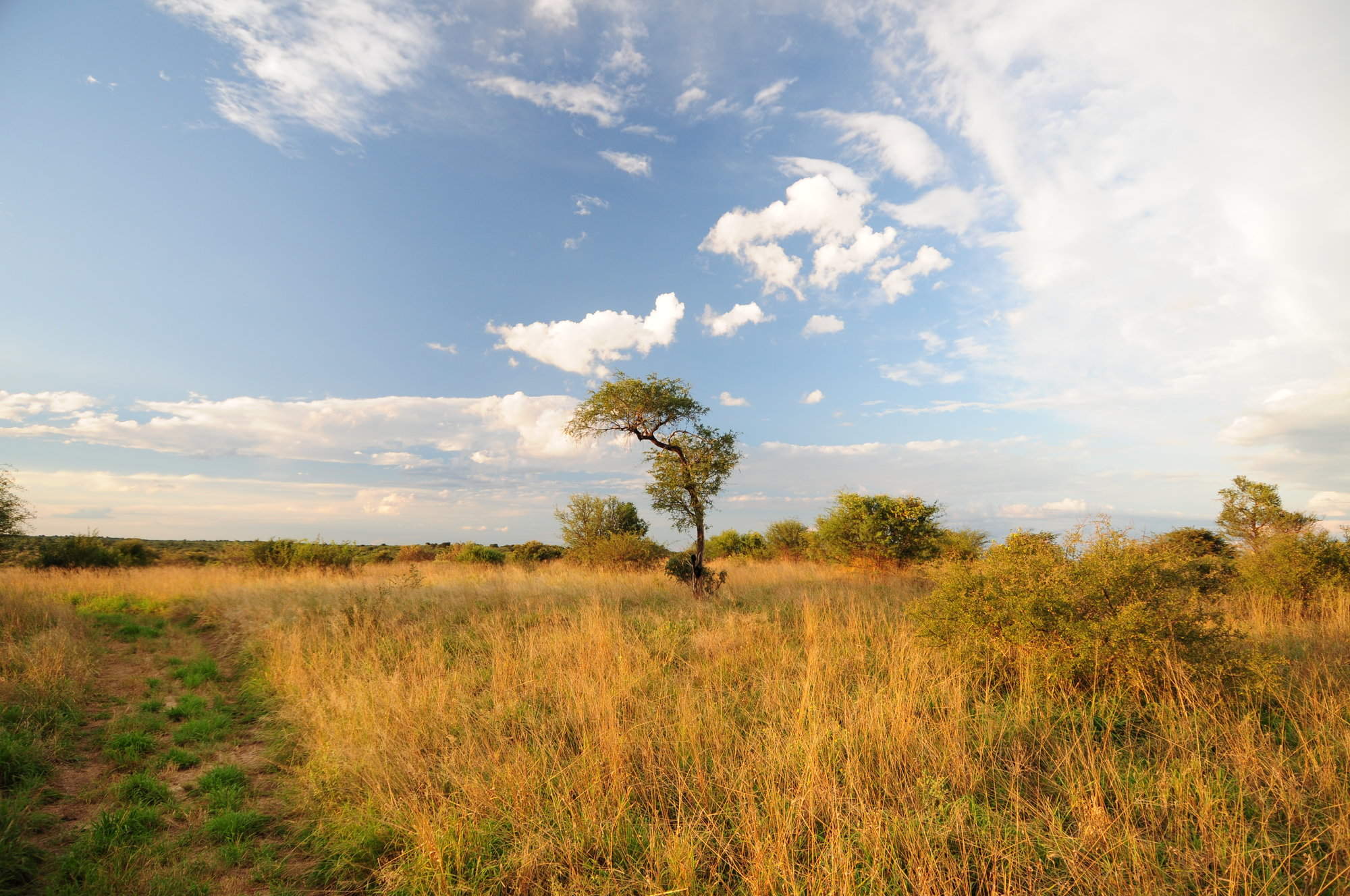
Deception Valley Lodge
A private reserve on the border of the CKGR, Deception Valley Lodge offers more flexible activities than within the reserve and a particularly good Bushman experience.
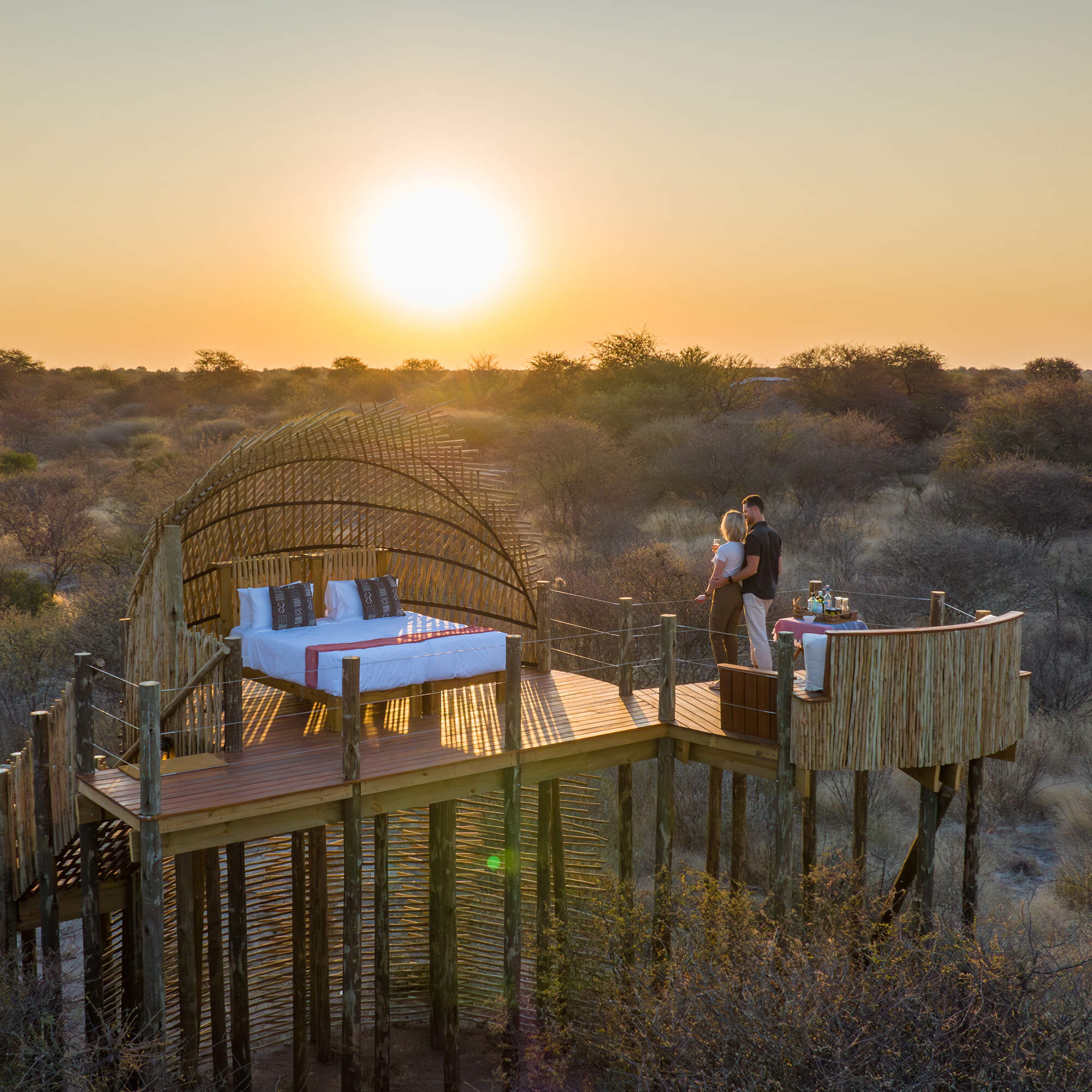
Gham Dhao Lodge
Within a private concession, Gham Dhao Lodge is one of a number of lodges located on the northern boundary of the CKGR, offering a year-round Kalahari experience.
When to go to Central Kalahari Game Reserve
Our month by month guide: What it's like to visit Kalahari Plains Camp in Central Kalahari Game Reserve
Jan
Feb
Mar
Apr
May
Jun
Jul
Aug
Sep
Oct
Nov
Dec
Central Kalahari Game Reserve in January
January marks the peak of the rainy season, transforming the arid terrain into a lush paradise with green grasslands and seasonal waterholes. Afternoon thunderstorms are common, bringing dramatic cloud formations and brief but intense downpours. Game viewing is spectacular, particularly in Deception Valley, where large herds of springbok, gemsbok, and wildebeest congregate, drawn by the nutrient-rich grasses.
Predators, including the famous black-maned Kalahari lions, thrive during this time, taking advantage of the abundance of newborn prey. Birdlife flourishes, with migratory species in full breeding plumage, filling the skies with vibrant colours and melodious calls. The combination of dramatic weather, abundant wildlife, and verdant landscapes makes this one of the most photogenic months in the Central Kalahari Game Reserve.
- Warm temperatures with frequent afternoon thunderstorms
- Large congregations of herbivores in the valleys
- High predator activity, particularly among lions and cheetahs
- Abundant migratory birds, including flamingos and raptors
- Lush, photogenic landscapes with dramatic cloudscapes
Our view
A very good time to visit
Weather in January
Central Kalahari Game Reserve in February
February continues the lush and green conditions, maintaining high concentrations of wildlife in the valleys. The abundance of food ensures that young animals, born in previous months, are still numerous, offering excellent predator-prey interactions as they become stronger but remain vulnerable. Birdwatching is at its best, with large numbers of waders, raptors, and colourful bee-eaters making the most of the insect-rich environment.
Relatively warm evenings make night drives comfortable, allowing guests to witness nocturnal species like brown hyenas and bat-eared foxes. Although thunderstorms still occur, they are typically brief and followed by stunning sunsets, bathing the plains in golden light.
- Lush landscapes, with scattered waterholes still full
- Predators actively hunting growing but vulnerable prey
- Exceptional birdwatching, with many species in breeding plumage
- Comfortable night drives with good sightings of nocturnal wildlife
- Dramatic sunsets following short-lived thunderstorms
Our view
A good time to visit, with pros & cons
Weather in February
Central Kalahari Game Reserve in March
March marks a transitional phase, as rains gradually decrease and the landscape begins to shift. The thick grass remains green, but visibility starts to improve as the vegetation thins slightly. Animal concentrations remain high in the valleys, with predators still capitalising on the abundance of prey. The last of the migratory birds prepare to depart, making this an excellent time for bird enthusiasts to catch their final glimpses of species like European rollers and yellow-billed kites.
As the air dries, dust and golden light enhance photographic opportunities, making it an ideal time for landscape photography. With fewer visitors compared to peak months, this is also a great time to enjoy a more exclusive experience.
- Rains taper off, with increased sunny days
- Wildlife still abundant, especially in Deception and Passarge Valley
- Predator-prey interactions remain at their peak
- Final weeks for migratory birds before they depart
- Excellent photography conditions - golden light and dramatic skies
Our view
A good time to visit, with pros & cons
Weather in March
Central Kalahari Game Reserve in April
Perhaps one of the best months to visit the Central Kalahari, April signals the end of the rainy season, yet the landscape remains vibrant. Seasonal water sources start to shrink, encouraging wildlife to remain near the valleys where grazing is still good. Morning and evening temperatures cool, making game drives more comfortable.
As the grasses begin to die back, visibility improves, making it easier to spot wildlife. Predators continue to linger in the valleys, as prey remains concentrated, providing excellent game-viewing opportunities. The clearer skies and crisp air make this a fantastic month for both wildlife and landscape photography.
- Cooler mornings and evenings, with little rainfall
- Vegetation thinning, improving game-spotting opportunities
- Wildlife still concentrated in valleys, though dispersal begins
- Excellent predator sightings, particularly cheetahs and lions
- Shoulder season pricing, making it an affordable yet rewarding time
Our view
Fantastic: the very best time to visit
Weather in April
Central Kalahari Game Reserve in May
May is a lovely month – usually with clear skies after the end of the rainy season. While the grass still holds some green hues, the land starts to take on its classic semi-arid Kalahari tones. Many herbivores begin to disperse into the surrounding vegetated dunes, though some remain in the valleys, followed closely by lions and cheetahs. The drying waterholes force game to move more, requiring greater tracking skills.
Early mornings and evenings are chilly, but daytime temperatures remain pleasant. As tourism increases, availability in lodges begins to decline, making early bookings essential.
- Cool mornings and evenings, but warm, dry days
- Wildlife still present, though dispersal begins
- Good predator activity, especially around remaining water sources
- Crisp air and golden light, ideal for photography
- Shoulder season ends, with increasing demand in lodges
Our view
A very good time to visit
Weather in May
Central Kalahari Game Reserve in June
In June, the dry season continues in earnest, bringing cool, crisp days and cold nights, sometimes dropping below freezing. As vegetation thins, spotting wildlife becomes easier, though animals are more spread out. Tracking skills become crucial for good sightings.
The lack of humidity means clear, stunning skies, both during the day and at night, making stargazing exceptional. With almost no cloud cover, the Milky Way is visible in all its glory, making Central Kalahari Game Reserve one of the best locations in Africa for astronomical photography.
- Warm days, freezing nights
- Wildlife more dispersed, requiring skilled tracking
- Peak predator activity continues, with great cheetah sightings
- Clear air enhances visibility for photographers
- Stunning night skies, perfect for stargazing
Our view
Fantastic: the very best time to visit
Weather in June
Central Kalahari Game Reserve in July
July is one of the coldest months in the Central Kalahari Game Reserve with dry air, chilly mornings, and freezing nights. Despite the cold, the clear, blue skies and bright sunlight make for perfect game drives. With vegetation at its sparse stage, wildlife visibility is excellent, though animals remain dispersed across the reserve. Tracking is key, with patient efforts rewarded by sightings of lions, cheetahs, and elusive brown hyenas.
The lack of light pollution makes CKGR one of the world’s best stargazing destinations, offering phenomenal views of planets, deep-space objects, and constellations.
- Cold nights, mild days, ideal for game drives
- Wildlife remains dispersed, requiring skilled tracking
- Predators remain active, especially cheetahs and lions
- Peak season begins, meaning high demand for camps
- Exceptional stargazing, with no humidity or light pollution
Our view
Fantastic: the very best time to visit
Weather in July
Central Kalahari Game Reserve in August
August remains dry and crisp, with temperatures slowly beginning to rise during the day, though nights remain cold. Occasional dust storms sweep across the Kalahari, adding an atmospheric drama to the landscape. With thin vegetation, game spotting is at its easiest, and smaller species, like honey badgers, aardwolves, and black-backed jackals, become more visible.
The cool, dry air enhances photographic clarity, creating sharp, vibrant imagery. As the Southern Hemisphere’s constellations reach their most visible stage, August is a prime month for astrophotography.
- Dry, warm days; cold nights persist
- Excellent visibility, making game-spotting easier
- Unique small predator sightings, including honey badgers and jackals
- Peak tourist season, with high demand in lodges
- Prime conditions for astrophotography, with dazzling celestial views
Our view
Fantastic: the very best time to visit
Weather in August
Central Kalahari Game Reserve in September
As temperatures begin to rise, the Central Kalahari Game Reserve transitions toward the hottest time of the year. The remaining water sources shrink, concentrating wildlife near pans and occasional artificial waterholes. Dust in the air intensifies Kalahari’s legendary sunsets, turning the sky into a fiery display of oranges, pinks, and deep reds.
Wildlife tracking requires more effort, as herds remain widely dispersed, but big cat sightings remain rewarding. With the increased heat, many animals seek shade midday, making early morning and late afternoon game drives the most productive.
- Warmer days, cool nights, perfect for most visitors
- Wildlife increasingly dependent on remaining water sources
- Active tracking needed for optimal predator sightings
- Striking sunsets, enhanced by dust and golden light
- High season rates, requiring early bookings for accommodation
Our view
Fantastic: the very best time to visit
Weather in September
Central Kalahari Game Reserve in October
October is the hottest month in the Central Kalahari Game Reserve, with daytime temperatures exceeding 40°C/104°F. The brutal heat forces animals into the shade, making early morning and late evening the best times for game drives. Big cats and scavengers patrol the remaining waterholes, creating dramatic predator-prey encounters.
Despite the harsh conditions, October’s dry, cracked landscapes offer striking photographic opportunities, with lone acacia trees and heatwaves shimmering on the horizon. Dust storms are frequent, adding an element of raw wilderness to the experience.
- Extreme heat, often exceeding 40°C/104°F
- Predators concentrate around last remaining water sources
- Intense, dramatic survival scenes play out between prey and predator
- Unique desert-adapted species remain active in the mornings and even
- Spectacular desert photography, with surreal, arid landscapes
Our view
A good time to visit, with pros & cons
Weather in October
Central Kalahari Game Reserve in November
November signals the beginning of the rains, breaking the intense heat and triggering an instant transformation of the landscape. The first thunderstorms arrive, refreshing the dry terrain and encouraging new grass growth, which in turn attracts the first herds of springbok, gemsbok and a scattering of wildebeest back to the valleys.
The return of migratory birds marks the start of the green season, with waders, raptors, and bee-eaters flocking to the area. Lightning storms create spectacular nightscapes, offering dramatic photographic opportunities.
- Hot days with first rain showers, cooling the landscape
- Fresh grasses begin to sprout, drawing herbivores back to the valley
- Predators remain active, anticipating the return of prey
- Migratory birds return, increasing birdwatching opportunities
- Dramatic lightning storms, perfect for photographers
Our view
A good time to visit, with pros & cons
Weather in November
Central Kalahari Game Reserve in December
December fully ushers in the green season, bringing regular rain showers and cooler temperatures. The plains burst into life, with newborn springbok and gemsbok appearing in particularly large numbers, attracting lions, cheetahs, and leopards.
Birdwatchers will find December particularly rewarding, with the highest density of migratory species present. The fresh green scenery, reflective waterholes, and contrasting storm clouds create a stunning backdrop for photography. Fewer tourists during this period make it a more exclusive safari experience, with lower rates in many lodges.
- Cooler temperatures, with frequent refreshing rains
- Newborn animals appear, drawing predators
- Exceptional birdwatching, with diverse migratory species
- Dramatic scenery, with green landscapes and stormy skies
- Lower season rates, making it an affordable time to visit
Our view
A good time to visit, with pros & cons
Weather in December

Looking for inspiration on where to travel next?
Visit our trip chooser to explore your options and find inspiration for your perfect African adventure
Inspire me